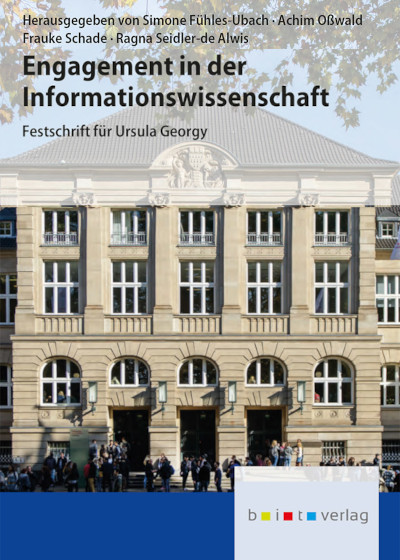 WEITERE NEWS
WEITERE NEWS
- Bibliotheken finanzieren Open Access neu
- Neuerscheinung: Baťas Menschen
- Zwischen Kompass und Bibel – UDE-Theologe übersetzt Mercators religiöses Hauptwerk
- Launch of new organisational structure shows pathway to EOSC Federation operations – EOSC Association
- Save the date: Open Science Festival 2027, 18. und 19. März 2027, Bamberg
- Die Vergangenheit einatmen: Wie Museen mithilfe biomolekularer Archäologie antike Düfte erlebbar machen können
- THM an Langzeitforschungsprojekt zu Sozinianern beteiligt
- Universitätsbibliothek Johann Christian Senckenberg übergibt erstmals Bücher an Jüdische Gemeinde Frankfurt

Aktuelles aus
L
ibrary
Essentials
In der Ausgabe
- Soziale Medien und Aufmerksamkeitsentwicklung bei Kindern: Neue Langzeitdaten zur ADHS-Risikodiskussion
- Repositorien im Wandel: Analyse zentraler Einflussfaktoren für die nächsten Jahre
- Wie inklusiv Sammlungen in Bibliotheken und Archiven wirklich sind
- Synergien von KI-Chat und Suche:
Wie unterschiedliche Altersgruppen
Information Retrieval neu gestalten - Kulturerbe-Daten im Zeitalter der KI:
Ein neues Zugangsmodell für Institutionen - Jugendliche, soziale Medien und KI-Chatbots: Digitale Nutzungsrealitäten 2025
- Buchclubs als unterschätzte Brücke zwischen Campusleben und Bibliothek: Neue Impulse aus US-Hochschulbibliotheken
- AI Librarian in Japan
- Altersgrenzen für soziale Medien:
Europas nächste Regulierungsdebatte - KI und Journalismus:
Neue Machtverschiebungen
im Markt für Nachrichteninhalte - Print ist tot, es lebe Print!

fachbuchjournal























































